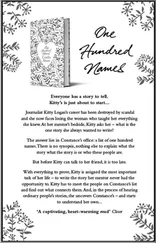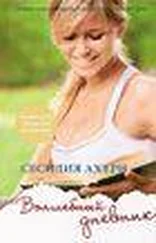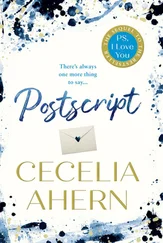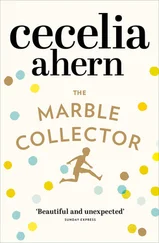‘Admit it.’
‘Tamara,’ she began, then paused, searching to find the right words. ‘Tamara, look at me. I’m…let me explain…we should go somewhere else to talk. Not here. Not in this greenhouse. Not with you like this.’
‘No. First I want to hear you admit it.’
‘Tamara, I really think that we should go inside and-’
‘Admit that you wrote it,’ I snapped.
Her face instantly changed to utter confusion. ‘Tamara, I don’t understand. Admit that I wrote what?’
‘The diary,’ I exploded, and pushed it in her face. I flicked ferociously through the pages. ‘Look, it’s been written in. I hid it in my bedroom, and this morning I brought it to the castle to write it, just like you told me to, and look. How did you do it?’ I shoved it under her nose and flicked through the pages, my wet hands blurring the ink. She blinked furiously to try to focus on the pages as they raced by.
‘Tamara, calm down. I can’t see anything, you’re going too fast.’
I went faster. She reached out and with those thick hands, strangling hands, she grabbed my wrists tightly and said firmly, ‘Tamara. Stop.’
It worked. She took the diary from my hands and opened the first page. Her eyes raced across the first few lines.
‘This isn’t for me to read. These are your private thoughts.’
‘I didn’t write them.’ I knew by then that she hadn’t either. The way her face had changed to such confusion couldn’t have been faked.
‘Well…who did?’
‘I don’t know. Look at the date on the first page.’
‘Tomorrow.’
‘Some of the things written are about what happens tomorrow.’
The rain pelted against the glass, so loud it felt like it was going to break through.
‘How do you know that, if tomorrow hasn’t happened yet?’ Her voice had softened, as though she was trying to coax a mental patient to put down a knife. She may very well have been, only I didn’t pick up the knife, somebody had put it in my hands. This was not of my own doing.
‘Perhaps you got up in the middle of the night and wrote it, Tamara. Maybe you were so sleepy you don’t remember doing it. I’ve often done funny things half asleep or half awake. I’ve wandered around the house looking for things when I don’t know what I’m looking for, moving things, and when I wake up in the morning and go to find something, I’m in a right muddle.’ She chuckled.
‘This isn’t the same thing,’ I said quietly. ‘I’ve written about things that have happened today that I couldn’t have known about. The rain, Rosaleen and the coat, you…’
‘What about me?’
‘I wrote that you’d be here.’
‘But I’m always here Tamara, you know that.’
Sister Ignatius kept talking then, trying to rationalise it, telling me a story about a time she’d wandered into Sister Mary’s room during the night, apparently looking for gardening gloves because she’d been dreaming of planting turnips, and she frightened the life out of Sister Mary. I tuned out. How could I have written five pages and not remembered? How could I have predicted the rain, Rosaleen’s arrival with the raincoat, Sister Ignatius waiting right here in the greenhouse with the spare beekeeping suit?
‘Our minds do unusual things sometimes, Tamara. When we’re looking for things it takes it upon itself to go down its own route. All we can do is follow.’
‘But I’m not looking for anything.’
‘Aren’t you? Ah, now it’s stopped. I told you it would. Why don’t we get you to the house to dry you off and get something hot into you? I made a soup yesterday with my own grown veg. It will be just right now, I’d say, if Sister Mary hasn’t sucked it up with a straw. She dropped her dentures yesterday and Sister Peter Regina accidentally stomped on them. Everything’s been through a straw since.’ She covered her mouth. ‘Oh, forgive me for laughing.’
I was about to protest when I remembered my comments in the diary about being smothered with a cold. Perhaps I could change what was going to happen. I followed her out of the garden and through the trees to her home.
The house was just like Sister Ignatius. It lacked a deceptive brick in its making, as it was as old on the inside as it was on the outside. We entered through the back door, a small hallway filled with Wellington boots, raincoats, umbrellas and sunhats, every necessity for every kind of weather. Uneven, cracked stone flagging floored the walkway to the kitchen. The kitchen was something from the 1970s. Shaker-style cabinets, linoleum flooring, plastic counter tops, avocado and burnt orange in every possible place from an era obsessed with bringing the outside in. There was a long pine table with a bench on either side, long enough to feed the Waltons. From a room off the kitchen a radio blared. Brown swirly carpet led my eyeline to a big television set with a booty that came out thirty inches from the wall. On top, cream lace dangled over the front of the screen and a statue of Mary stood. On the wall above it was a simple wooden cross.
The house smelled old. Musty damp mixed with generations of cooked dinners and greasy cooking oil. Somewhere in there was the scent of Sister Ignatius’ a clean talcum powder soapy smell, like a freshly bathed baby. Like Rosaleen and Arthur’s house, this had the feel that generations of people had lived there before, families had grown up, run and shouted through the hallways, had broken things, grown things, fallen in love and pulled themselves back out of it again. Instead of the occupants owning the house, the house owned a part of each of them. We never had that feeling in our house. I loved our house but every bit of life was cleaned away by our cleaners who everyday rid the rooms of history’s perfume and replaced it instead with bleach. Every three years a room was done up in a new style, old furniture thrown out, new furniture moved in, a painting to match the sofa. There was no eclectic collection of items gathered through the years. No sentimental clutter crammed together oozing secrets. It was all new and expensive, lacked anything of sentiment. Or that’s how it had been.
Sister Ignatius hurried off in her beekeeping suit, walking like a toddler with a bulging nappy. I took off my cardigan, lay it across the radiator. My vest was see-through and stuck to me, my flip-flops squelched but I daren’t take them off in case dirt from the previous family stuck to my sole. Too much of outside had been brought in on these floors.
Sister Ignatius returned with a towel in her hand and a T-shirt.
‘I’m sorry, this is all I could find. We’re not in the habit of dressing seventeen-year-olds.’
‘Sixteen,’ I corrected her, checking out the woman’s pink marathon T-shirt.
‘I ran it every year from ‘61 to ‘71,’ she explained, turning to the Aga to prepare the soup. ‘Not any more, I’m afraid.’
‘Wow, you must have been fit.’
‘What do you mean?’ She struck a pose in her beekeeping suit and kissed a padded bicep. ‘I haven’t lost it yet.’
I laughed. I lifted my vest over my head and lay it on the radiator too, then I put the T-shirt on. It went to mid-thigh. I took off my shorts and used the belt to turn the T-shirt into a dress.
‘What do you think?’ I walked an imaginary runway for Sister Ignatius and posed at the end.
She laughed and wolf-whistled. ‘My word, to have a pair of legs like that again,’ she tutted and shook her head.
She brought two bowls of soup to the table and I devoured mine.
Outside the sun shone, the birds sang again as though the rain had never fallen, as though it had all been a figment of our imaginations.
‘How’s your mother?’
‘She’s fine, thank you.’
Silence. Never lie to a nun.
Читать дальше
Конец ознакомительного отрывка
Купить книгу












